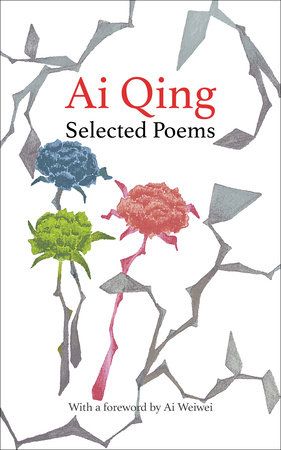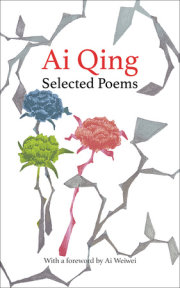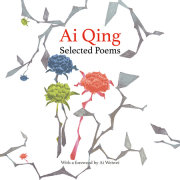Foreword
In the twenty-one years between my birth in 1957 and 1978, my father, the most prominent Chinese poet in modern history, was deprived of the right to write by his government. Writing poetry was the most precious part of his life, and when he was young, Ai Qing said, “If one day my life leaves poetry, it would soon end as well.” Unfortunately, it did not end there. He left poetry but did not end his life; the regime only deprived him of his writing, forcing him to withdraw from the reading public. For many years, he was forbidden to touch pen and paper, and was sent to the Gobi Desert in the remote province of Xinjiang, where he cleaned the communal toilets of a labor camp and underwent ideological reforms day after day.
When I was growing up, my father was not engaged in writing. He tenaciously faced all kinds of misfortunes brought by fate. He was known to be tolerant, upright, and selfless. Misfortunes never shook his trust in justice, and he never lost his outspoken innocence; he remained optimistic and open-minded.
In his work, Ai Qing tells the story of an ancient nation in the East over the past hundred years as it bid farewell to the heavy burden of feudalism and imperialism. This land was recovering from the violent revolution of the twentieth century to become a new country. In the process, a generation of people experienced an arduous struggle, only to exchange the past repression for a new totalitarian rule as China became the country with the harshest control over freedom of thought and speech in human history. Today its political system erases history and culture and has destroyed the language formed over generations, abusively transforming it into crude political propaganda, a cliché of mediocrity, leaving aesthetics and morals in ruins.
In contrast to this, Ai Qing’s poems are characterized by his sincerity, a powerful tool for resisting autocracy and oppression. As an anti-feudal, anti-imperialist intellectual, fighting for national liberation, individuality, and freedom of speech, he left a rich legacy of the people ’s struggle.
I never expected to write the preface for my father’s poetry collection and present it to an audience of readers that he never dreamed of. During the Cultural Revolution, a few decades ago, he and I burned his entire collection of books and manuscripts together.
The differences between my father and me cannot be erased by the biological bond. I was born into a different world than he was. However, I found a great affinity with him, which gradually emerged after more than half a century: we are both sealed by the same fate to fight against tyranny, and to endlessly reflect upon and discuss the concept of freedom. My understanding of him is deeply rooted in the interpretation of liberation of the individual and the crises faced by humanity.
As a kind of faith, Ai Qing’s writing brought both joy and sorrow to his life. He sacrificed for his beliefs in order to survive under the harsh political environment. His use of vernacular Chinese and his love for simple truths make his expression a powerful reality; his inner truth makes his poetic thinking flow like a stream of spring water, even in the driest season. In the most suffocating years, Ai Qing never betrayed his beliefs; it was he who showed me the courage needed when aesthetics and morals are marginalized. Against the aesthetic mediocrity of despotism, poetry is the key to wisdom, and the mortal enemy of banal politics. The existence of poetry is proof that the soul cannot be conquered, that no matter when and where, poetry comes the closest to reflecting inner truth, and the creation of another accepted truth is subversive to the desert of power: independent and unruly, as an unyielding existence, poetry is salvation.
Ai Weiwei
February 4, 2021
Copyright © 2021 by Ai Qing. All rights reserved. No part of this excerpt may be reproduced or reprinted without permission in writing from the publisher.








